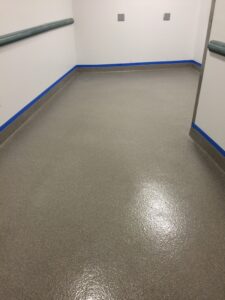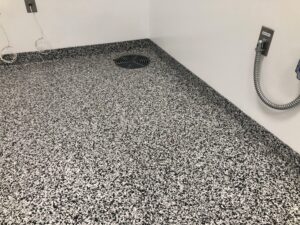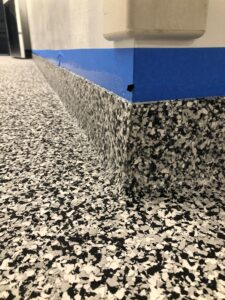When installing proper 
What Is Coving?
Coving is the technique of installing small barriers lining the edges of a floor where it meets the wall (referred to as coves). Coves are generally rounded 45-degree angles which slope upwards, preventing a hard 90-degree angle where floor and wall meet.
Coves serve several purposes. Most importantly, they prevent dirt and grime from building up along the edges of the floor, and in the corners. Without coves, these areas are extremely difficult to properly clean, and can lead to substantial hygiene issues.

Finally, coves are aesthetically pleasing. They give a floor a finished quality that helps improve the look and feel of a space. When trying to achieve an environment that will make an impression, coves are not to be overlooked.
When are coves required?
Companies and industry where health and hygiene procedures are heavily regulated typically require coving during floor installation and repair. This includes pharmaceutical factories, food and beverage processing, commercial kitchens, industrial wet environments, and similar operations.
The cost of coving is minimal; and when compared to the improvement health, safety, and cleaning efficiency implications, the investment is well worth the expense. It maximizes the ROI from the entire system.
How are coves installed with resinous floor coatings?

Black Bear Has Your Flooring Solutions
Black Bear Coatings & Concrete team is a trusted partner in this niche industry. We value-engineer commercial and industrial flooring solutions based on the environmental factors that could impact the longevity of your floor. As a result, this provides a longer-lasting product. In addition, our flawless installation ensures a timely, accurate delivery that minimizes disruption in operations and keeps the focus on your business.
Contact us directly for more information about our epoxy, urethane, polished concrete, and MMA flooring solutions. Request a free, on-site assessment to learn how Black Bear can provide a compliant, visually appealing, and durable floor for your business.



